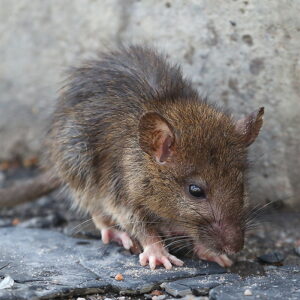Given the ick factor, germiness and damage–such as chewing on electric wires–rats may be the most disgusting pests around. But they’ve lived alongside humans for eons and are not likely to become extinct any time soon.
According to a pest industry publication, “Pest Gnome,” Philadelphia ranks No. 4 among U.S. cities for vulnerability to rat infestation, behind No. 1 New York (no surprise), No. 2 Los Angeles, and No. 3 Jersey City.
Some reasons rats might converge on certain metropolises are dense population, restaurants per square mile (hey, a rodent’s gotta eat), number of exterminators, and dirt, the website said.
“Affectionately dubbed ‘Filthydelphia’ by its locals, Philadelphia (No. 4) still outshines 25 other cities in the cleanliness department. But don’t be too quick to cheer — the city’s Crowdedness (No. 8), combined with the restless fingers of concerned residents (No. 7 in rat-related Google searches), has trapped it in 4th place overall,” according to “Pest Gnome.”
They’ve appointed a “rat czar” to reduce their rat bonanza in New York but Philadelphia just has its health inspectors.
Last year, Philadelphia was ranked sixth in pest-control company Orkin’s annual “Rattiest Cities” list. That list had Chicago beating New York for the top rat honor.
But according to the U.S. Census, Philadelphia was the second-most rat-filled city, with 20 percent of homes reporting rodents, behind Boston with about 22 percent.
In February 2022, the City Council passed a bill to stop rats from fleeing to homes near construction sites by requiring owners of those properties to get rid of the rodents before demolition.
The law requires that for any demolition, full rehabilitation or new construction with excavation, the property owner must prepare a rodent control management plan for the site. This plan is submitted to the Department of Licenses and Inspections, said James Garrow, communications director of the Philadelphia Department of Public Health.
“Regarding restaurants, our inspection process looks for evidence and complaints about rat infestation and will note that on their inspection. Restaurant owners would be required to correct those situations and may be subject to closure or reinspection,” Garrow said.
So, could those city rats become country rodents spreading into the nearby collar counties?
“The Health Department says it hasn’t noticed any increase in rodent activity in Bucks,” said James O’Malley, Bucks County spokesman. Similarly, Megan Alt, a spokesperson for Montgomery County, said there have not been rat reports.
According to Matthew Rankin, a spokesman, the Delaware County Health Department receives just a few calls a year come in for rat complaints or infestations. The Delaware County Health Department has investigated one complaint about rats so far in 2023.
“DCHD educates and guides Delaware County residents and facilities when rats invade living or eating spaces. The guidance involves eliminating food, water, and shelter in the areas where rats are seen. Rats come into neighborhoods looking for food and shelter. When those two necessities are removed, rats will travel to another location to find them. Overgrown shrubs, bird feeders, pet waste, garbage that is not secured properly, and access holes to buildings from the outside can all attract rats,” Rankin said.
Also, “in some cases, when infestations become large and uncontrolled, DCHD will assist local municipalities in educating the community. This may include walking through a neighborhood to inform the community on what they can do to eliminate the food source, water source and harborage for rats and other rodents. Professional pest control services are recommended at the first sign of rats and rodents, especially for facilities that serve food,” he added.
Readers can visit How to Control Wild Rodent Infestations | Healthy Pets, Healthy People | CDC for more information.
According to “Pest Gnome,” rats are most likely to bother people in the fall and winter when they come into houses for warmth and food. So, heads up! Prime rat season is coming soon.
Philadelphia rats can be reported to the Philadelphia Department of Health: (215) 685-9000.
If there’s a rat in a food establishment, call (215) 685-7495.

